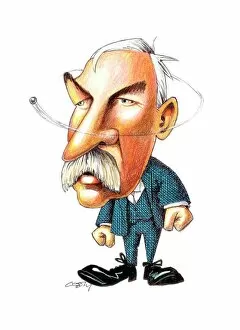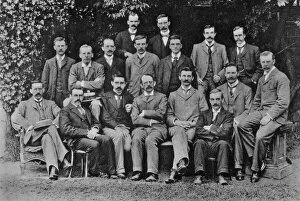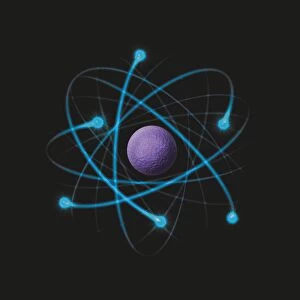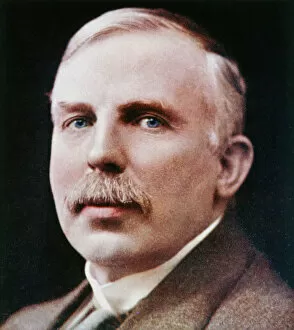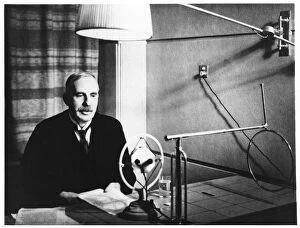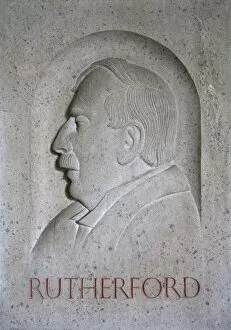Ernest Rutherford Collection
Ernest Rutherford, the New Zealand-born physicist and founder of nuclear physics, was a pioneering figure in the field of atomic physics
For sale as Licensed Images
Choose your image, Select your licence and Download the media
Ernest Rutherford, the New Zealand-born physicist and founder of nuclear physics, was a pioneering figure in the field of atomic physics. With his groundbreaking experiments and theories, he revolutionized our understanding of the atom. In 1898, Rutherford worked alongside British nuclear physicist JJ Thomson in the Physics Laboratory at Manchester University. This collaboration laid the foundation for his future discoveries. A caricature of Rutherford during this time captures his dedication and passion for unraveling the mysteries of atomic structure. Rutherford's most notable achievement came in 1908 when he won the Nobel Prize in Physics for his investigations into radioactive substances and their decay products. This recognition solidified him as one of history's greatest scientific minds. A black-and-white photograph shows Rutherford alongside Hans Geiger in Manchester University's Physics Laboratory. Their partnership led to significant advancements in radiation detection techniques, including their famous invention -the Geiger-Muller counter. Despite achieving international acclaim, Rutherford never forgot his roots. In 1926, he returned to New Zealand on a home visit where he broadcasted about his groundbreaking work to inspire fellow Kiwis with scientific curiosity. The illustration depicting Rutherford's model of an atom showcases its revolutionary concept: a tiny nucleus surrounded by negatively charged electrons orbiting it like planets around a sun. This model challenged previous beliefs about atomic structure and paved the way for further research. Throughout his career, Ernest Rutherford remained dedicated to pushing boundaries and expanding human knowledge. His contributions continue to shape modern science today – from nuclear energy applications to medical diagnostics using radioactive isotopes. With each accolade earned and experiment conducted, Ernest Rutherford left an indelible mark on scientific history that will forever be remembered as a testament to human curiosity and ingenuity.

